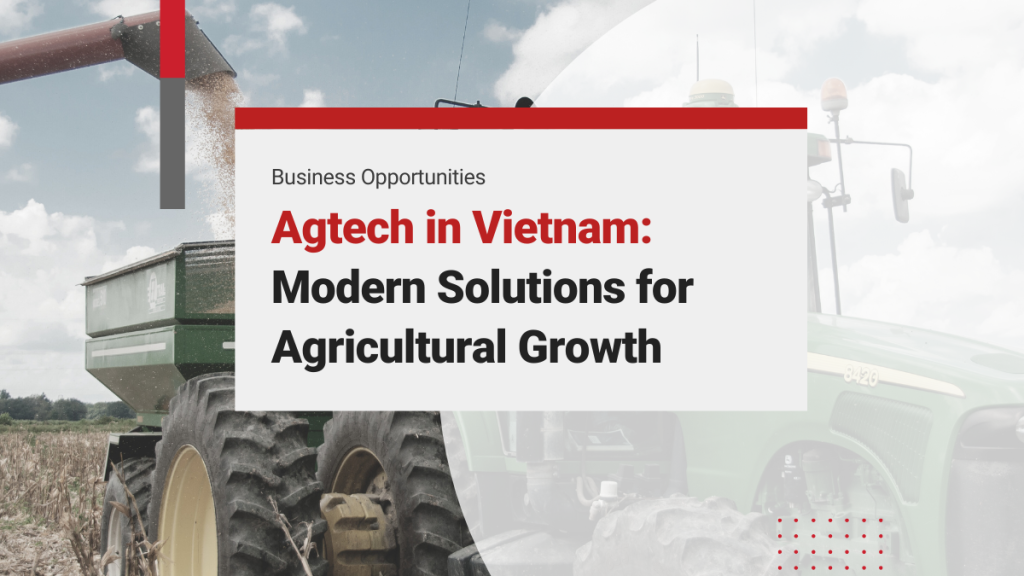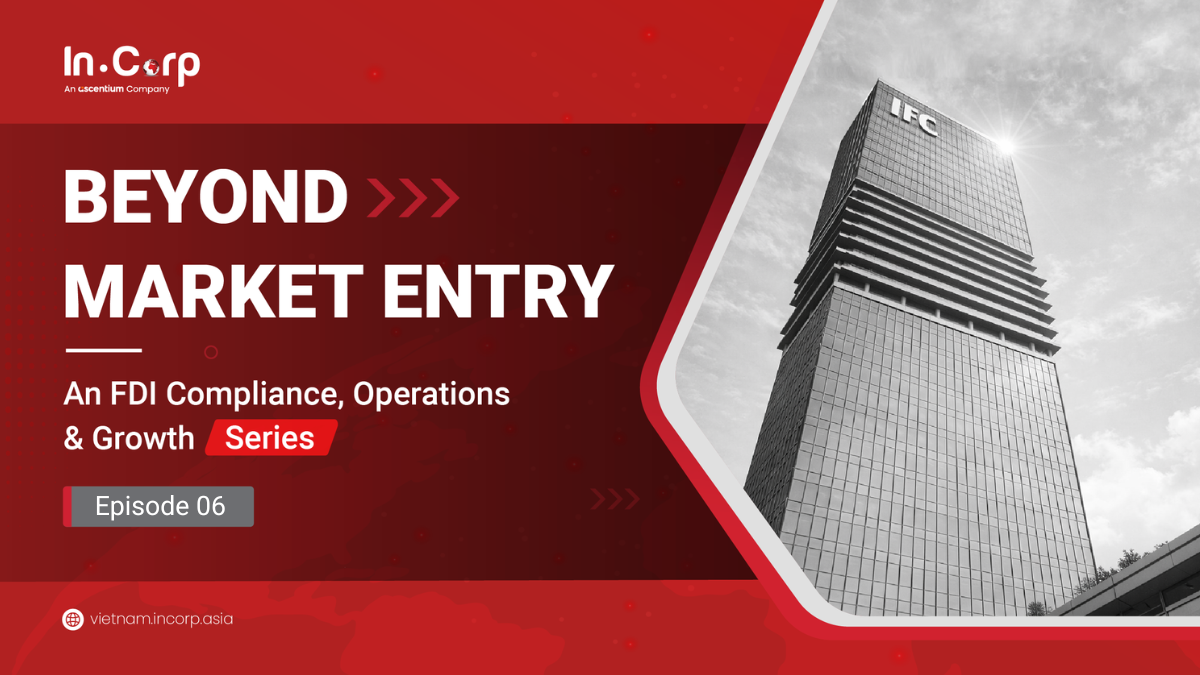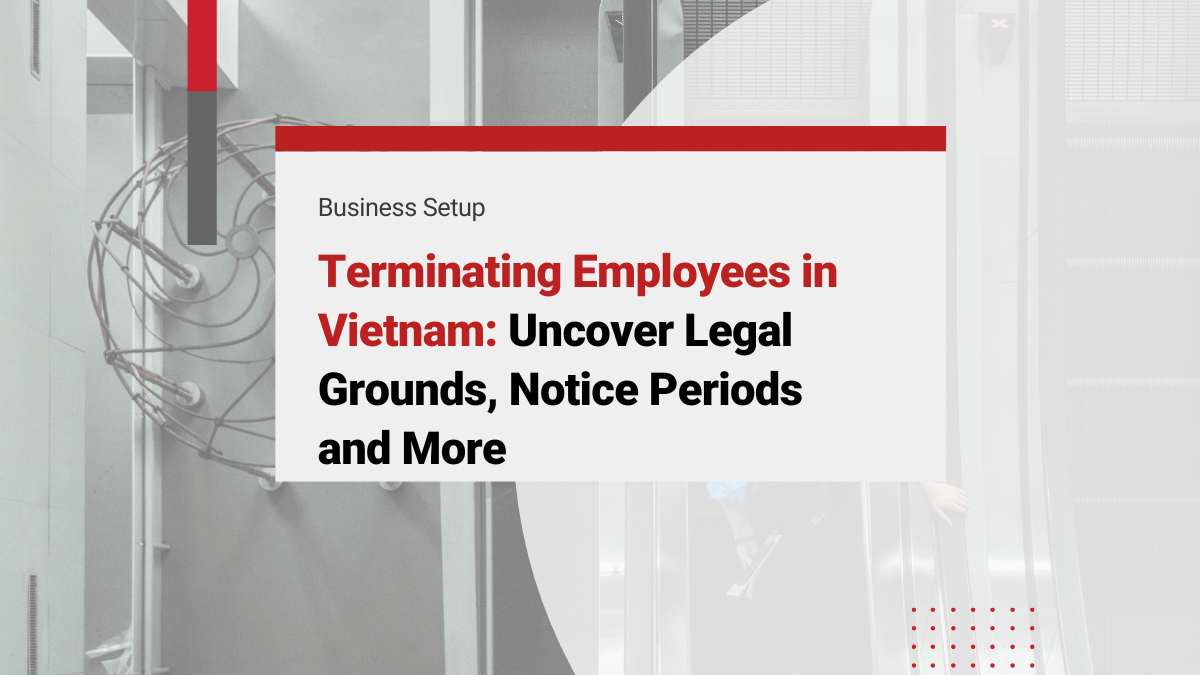Agtech is revolutionizing Vietnam’s agriculture by integrating advanced technologies such as IoT, smart farming, data analytics, and biotechnology. These innovations are addressing the growing need for higher productivity, efficiency, and sustainable practices. As a significant contributor to Vietnam’s economy, agriculture is embracing these modern solutions to boost yields, optimize resource usage, and reduce environmental impact, paving the way for a more resilient agricultural sector. As more agritech startups and investors enter this space, it is recommended to engage company registration consultants to ensure their business setup and compliance processes align with Vietnam’s regulatory and investment framework.
However, the adoption of Agtech comes with challenges. High initial costs, limited access for small-scale farmers, and the need for education and training to leverage these technologies remain barriers. Despite these hurdles, opportunities abound, driven by government policies, increasing global food demand, and efforts to mitigate climate change. Agtech is poised to shape Vietnam’s agricultural future, offering a transformative path toward innovation and sustainability.
Overview of Agtech in Vietnam
Vietnam’s agricultural sector is a cornerstone of the nation’s economy, contributing nearly 15% to Vietnam’s GDP as of 2023. This underscores agriculture’s vital role in Vietnam’s economy, serving as both a food source and a major driver of economic activity and employment.
The evolution of Vietnam’s agriculture sector can be traced back to the 1990s, when major intensive monoculture systems, such as rice monoculture and intensive coffee and pepper production, began to take root. These systems have transformed Vietnam into a leading exporter of agricultural products, with coffee, pepper, cashew nuts, and rubber becoming major export commodities. This growth has been fueled by trade liberalization and agricultural reforms, which have significantly increased production volume and export value.
As Vietnam continues to develop, the agricultural sector’s reliance on traditional methods is being challenged. Agtech is set to modernize farming practices, boost productivity, and enhance sustainability. This shift is crucial for maintaining the sector’s contribution to Vietnam’s GDP and securing its future in a rapidly changing global economy.
Key Drivers for Agtech Adoption
Several factors highlight the urgent need for Agtech adoption in Vietnam’s agricultural sector. Vietnam’s transition to a market-oriented economy has spurred investment and technological innovation, making the agricultural sector more competitive. This shift has paved the way for new technologies and practices.
However, economic changes are not the only catalysts. Labor productivity issues and the need for sustainable development are also significant. The aging farmer demographic and low productivity levels necessitate technological interventions to maintain and enhance agricultural output.
Additionally, environmental concerns and the impacts of climate change call for sustainable agricultural practices, which Agtech can facilitate. Collectively, these factors create a strong foundation for Agtech adoption in Vietnam.
Read Related: Vietnam’s Workforce: High Demand Skills and Advice for Business in 2025
Economic Shifts and Growth
Since the 1990s, Vietnam’s shift to a market-oriented economy has enhanced the agricultural sector’s competitiveness. It has attracted investments in smart farming technologies, including consulting, agricultural services, and farm management solutions. Companies like TH True Milk and Vinamilk have heavily invested in high-tech farming to boost productivity and quality.
Despite these advancements, the Vietnamese Agtech sector remains underdeveloped compared to other countries, largely due to a scarcity of Agtech companies. This gap offers both challenges and opportunities: significant potential exists for advancements in agricultural productivity and efficiency.
Labor Productivity Challenges
Labor productivity is a major hurdle for Vietnam’s agricultural sector. The average age of farmers has risen significantly, creating a demographic challenge. Over the past decade, the agricultural labor force has shrunk, compounding the productivity issue. This aging and shrinking workforce underscores the need for technological solutions to maintain production levels.
Moreover, the agricultural sector in Vietnam faces challenges in developing a high-quality workforce. A shortage of experts and a high proportion of untrained rural labor impact productivity. The relatively low education level of the agricultural labor force further impacts productivity. To compensate for these issues, there has been an increased application of agricultural technology.
Barriers like limited access to smartphones and electricity in rural areas hinder widespread IoT and blockchain adoption. Additionally, the concept of Agtech is not widely recognized in rural areas, limiting its potential impact and effectiveness. These challenges necessitate targeted efforts to improve productivity through technology transfer and training.
Sustainable Development Needs
Sustainable development is crucial for Vietnam’s agricultural sector. The impacts of climate change, such as fluctuating rice production due to drought and saltwater intrusion, pose significant challenges. Adopting non-toxic and environmentally friendly technologies is vital for sustainable agriculture. An increasing urban population is pushing farmers to adopt modern technologies to meet food demands.
The Vietnamese government has created strategies to modernize agriculture and enhance productivity. Committed to achieving net-zero emissions by 2050, the government emphasizes increasing value-added production and reducing environmental impact. These strategies address the challenges of urbanization, climate change, and food security.
Read Related: Future-Ready Digital Infrastructure Strategy Approved for 2025 in Vietnam
Major Agtech Opportunities in Vietnam
The landscape of Agtech in Vietnam is ripe with opportunities. Key areas include the Internet of Things (IoT), smart farming solutions, and biotechnology and genetics. These technologies hold the potential to revolutionize farming practices, improve efficiency, and enhance the quality of agricultural products.
Collaborations between local enterprises and foreign firms through technology transfer, investment, and training drive the Agtech industry advancements. The establishment of 34 high technology agricultural zones across 19 provinces will facilitate technological advancement. Effectively harnessed, these opportunities can propel Vietnam’s agricultural sector to new heights.
Read Related: Automation in Vietnam: Advancing Industrial Innovation and Industrialization with Artificial Intelligence Automation
Internet of Things (IoT)
Automation and IoT are key for improving product quality and reducing costs. Farm sensors collect data on moisture, light, temperature, and fertilizing, aiding decision-making. These sensors monitor environmental factors, providing insights to optimize farming.
Affordable and adaptable solutions are prioritized for Vietnamese farmers to increase production efficiency. Foreign investors have significant opportunities in the IoT sector due to low entry barriers, requiring only basic infrastructure like smartphones, electricity, and internet access.
Smart Farming Solutions
Smart farming is crucial for mitigating climate change impacts on agriculture. Companies like TH True Milk and Vinamilk have heavily invested in hi-tech farming, setting an example. Foreign investors have opportunities in smart farming through farm management solutions, agricultural services, and consulting.
Companies like Enzootic, GoodHout BV, and SmartFarm Co Ltd are showing interest in Vietnam’s Agtech sector. These investments drive the adoption of smart farming solutions and enhance agricultural productivity and sustainability.
Biotechnology and Genetics
The Vietnamese government emphasizes making biotechnology a leading industry. Gene technology advancements have created high-yield, quality, disease-resistant crops and livestock. There is a specific need for rice varieties that can thrive in challenging environmental conditions.
Foreign enterprises have numerous opportunities in Vietnam’s biotechnology sector. Partnerships with institutes, universities, and startups focused on research-based productivity are highly encouraged. Countries like Sweden, Denmark, Italy, and Switzerland supply advanced technology and equipment, especially in the dairy sector.
Investing in Vietnam Agtech Industry? Check out InCorp Vietnam’s Incorporation Services
Regulatory Environment and Government Support
Vietnam’s regulatory environment and government support are vital for fostering Agtech growth. Policies like Decree 57/2018/ND-CP incentivize investments in agriculture and rural development. Eligible investors can benefit from reduced corporate income tax rates and significant tax exemptions.
The government has established around 2,000 high-tech cooperatives and six national high-tech zones to enhance modern agricultural practices in an agricultural country. These initiatives provide farmers with access to agricultural land, credit, high-tech applications, and workforce training.
Key Government Agencies
Three main government agencies regulate Agtech in Vietnam. The Ministry of Agriculture and Rural Development plays a key role in regulating and promoting high-tech agriculture. It is also responsible for issuing the hi-tech agricultural enterprise certificate.
These agencies facilitate Agtech growth, ensuring farmers can access modern technologies and practices. These agencies provide a structured and supportive environment for adopting Agtech solutions.
Certification Process for Hi-Tech Agricultural Enterprises
The certification process for hi-tech agricultural enterprises requires submitting original and copied documentation. This process is vital for establishing standards and facilitating growth in the Agtech sector.
Government Incentives
The Vietnamese government has introduced supportive government policies to foster high-tech agriculture, enhancing productivity and competitiveness. Investment in high-tech agriculture is supported by incentives like tax reductions and flexible loan options. Eligible investors enjoy a reduced corporate income tax rate of 10% for 15 years. Projects under Decree 57/2018/ND-CP can benefit from land rent exemptions for up to 15 years. These incentives are key for attracting foreign investors and driving Agtech growth.
Read More: Maximize Benefits: A Complete Guide to Tax Incentives in Vietnam for Foreign Companies
Challenges Facing Agtech in Vietnam
Despite promising opportunities, several challenges hinder Agtech growth in Vietnam. Market fragmentation complicates smart farming implementation, requiring a comprehensive market entry approach. Foreign firms face lengthy import procedures and a lack of transparency in incentives and regulations.
High capital requirements and financial risks limit investment project opportunities for small and medium enterprises. Green agriculture startups struggle with financial barriers and a lack of infrastructure, hindering production scaling. The limited number of Agtech companies reduces awareness and innovation in rural areas.
Read More: 10 Major Business Challenges Foreign Investors Face in Vietnam
Future Outlook for Agtech in Vietnam
The future outlook for Agtech in Vietnam is promising. The agriculture sector is projected to grow by 3.0% to 3.5% in 2024. A key goal is to increase agro-export turnover to between US$54 billion and US$55 billion. This growth reflects the government’s focus on rural development, with 78% of communes meeting new standards.
The Ministry of Agriculture and Rural Development is promoting agricultural cooperatives and linking production with consumption. These initiatives are expected to drive further growth and modernization in Vietnam’s agriculture.
How InCorp Vietnam can Help?
With expertise in navigating regulatory frameworks and market entry strategies, InCorp Vietnam helps clients capitalize on opportunities in areas like IoT, smart farming, and biotechnology. Our consultants help you ensure compliance with government policies and facilitates connections with key stakeholders in the sector.

clients worldwide

professional staff

incorporated entities in 10 years

compliance transactions yearly
Learn the Right Setup for Business
Expansion in the Vietnam
Frequently Asked Questions
What percentage of Vietnam's GDP is contributed by agriculture?
- Vietnam's agriculture contributes nearly 15% to the nation's GDP as of 2023.
What are the major export commodities from Vietnam's agricultural sector?
- The major export commodities from Vietnam's agricultural sector are coffee, pepper, cashew nuts, and rubber. These products significantly contribute to the country’s economy and global agricultural market.
How is the Vietnamese government supporting high-tech agriculture?
- The Vietnamese government is actively promoting high-tech agriculture by providing reduced corporate income tax rates, land rent exemptions, and supporting high-tech agricultural cooperatives. These incentives enhance growth and innovation in the secto
What is the future growth projection for Vietnam's agriculture sector?
- Vietnam's agriculture sector is projected to experience growth of 3.0% to 3.5% in 2024. This indicates a positive outlook for agricultural development in the country.






